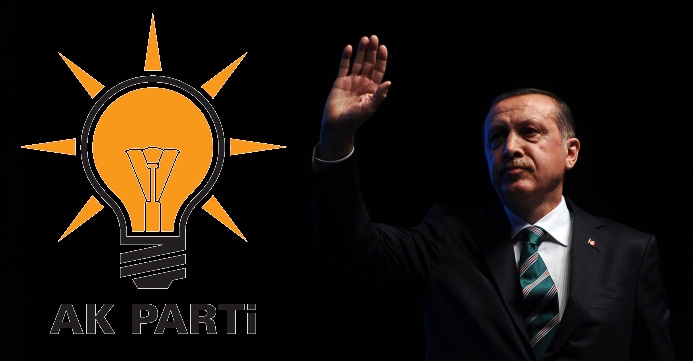Smart Economic Policies and Social Integration delivered a win for Erdogan and AKP


Recep Tayyip Erdogan’s sweep to victory in Sunday’s vote in the first round of Turkey’s first popular presidential election is a stamp of approval of his popularity and party, AKP.
This came after Erdogan’s 12 year stint as Prime Minister which saw Turkey, considered the hip of Asia and Europe establish itself as an industrialized economy and the best performing economy in Europe despite the global financial recession which saw most European economies go into a slump. Turkey is now the fourth most generous country in the world after USA, UK and EU and only rivaled by Sweden in terms of humanitarian assistance as a percentage of its gross national income, GNI.
Economic stability
After the crippling 2001 economic crisis in Turkey, Turkish economy has remained steadfast thanks to Erdogan’s smart policy. In 2002 Turkey’s GDP was $230 billion but slightly over ten years later GDP growth has surpassed expectations to hit the $800 billion mark.
This has resulted in massive investments in socio-economic sectors of the Turkish society with education now allotted 18% of the GDP, a remarkable improvement from 9.5% in 2002 before AKP came to power. With this, Turkish institutions of higher learning have commanded respect among Asian and European universities and have become a destination for students not just from these two regions but also globally. The government also provides for free learning materials from elementary school to high school and has also scrapped university education fees.
Infrastructure leap
 Before the Justice and Development Party, AKP, under Erdogan’s stewardship took over the reins of power, Turkey’s economic infrastructure was way far in competition with its contemporaries in Asia and Europe but the AKP leadership has enabled the construction of 27 airports in a record ten years to stand at 52 from 25 in 2002. It is worth noting that in 80 years the airport number stood at the same, twenty five.
Before the Justice and Development Party, AKP, under Erdogan’s stewardship took over the reins of power, Turkey’s economic infrastructure was way far in competition with its contemporaries in Asia and Europe but the AKP leadership has enabled the construction of 27 airports in a record ten years to stand at 52 from 25 in 2002. It is worth noting that in 80 years the airport number stood at the same, twenty five.
Through its smart economic policy, the AKP has constructed 15,000Kms of roads connecting various parts of the country, some of which were locked out for years as a result of lack of road network. This was a departure from the 80 year stagnation which saw the country operate with a paltry 6,000km road network. This dramatic growth has seen the number of registered vehicles jump to about eighteen million from slightly over eight million in 2002.
In 2013, Turkey opened the world’s first underwater rail link between two continents, connecting Asia and Europe and allowing then Prime Minister Tayyip Erdogan to realise a project dreamt up by Ottoman sultans more than a century ago. The 5.5 billion lira (£1.72 billion) tunnel was one of Mr. Erdogan’s “mega projects”, an unprecedented building spree designed to change the face of Turkey. Mr Erdogan has called the Marmaray the project of the century and says it fulfills an age-old “dream of our ancestors”.
Called the Marmaray, the rail link now carries subway commuters in European’s biggest city (Istanbul) and will eventually serve high-speed and freight trains.
In the 2001 economic crisis in Turkey, 25 banks went burst with a loss of over $47 billion but currently the banking sector is one of the best performing with the 2010 Forbes Global 2000 listing ranking over five banks between the 200 and 600 mark.
Social and religious integration
Social integration has been one of Erdogan’s success stories over the years. It will be remembered that Turkey suffered many years of ostracization of the Kurdish community which saw their property being seized under the old Turkish Empire. However, this was completely banished by the AKP administration which has seen the mainstreaming of the Kurdish society into the Turkish national life. For example, the Kurdish TV channels are numerous even with state TV running on 24 hours basis. The same can be said of education; many universities now run Kurdish instructed programmes.
Land initially confiscated by the former regimes has now been returned to the original owners, many of them Jews, Armenians and Assyrians. Erdogan’s policy on religious tolerance has seen the restoration of churches and freedom of worship recognized by the state. This includes Mor Gabriel Monastery in Mardin and St.Aziz Pandeleimon Church in Bursa.
Other areas of remarkable excellence include the expansion of wildlife from 33 in 2002 to 40 in 2012 amounting to three million and over five million hectares respectively. National parks have increased from 17 in 2002 to 189 in 2012 and with Areas for Advancement of Wildlife, initially not in existence to 43 currently.
Sunday’s win adds to AKP’s win of 9 elections and referendum in 12 years.
Ajmal Masruur.
London UK
Opinions expressed in this page are the author’s own and do not necessarily reflect that of Goobjoog News editorial policy.